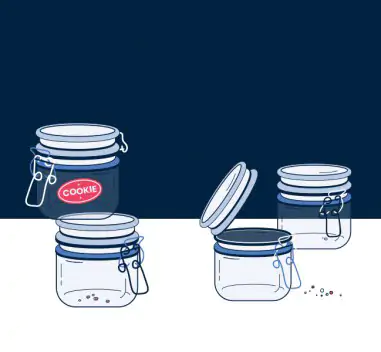Like any piece of content you put forth on behalf of your brand, video must be carefully curated to communicate your mission, values, and brand promise. It can also make your website more compelling and engaging for all users and extend a user’s time spent on your site. However, if not done properly, videos can be distracting and create usability issues or performance problems.
Below are some recommendations on how to develop a sound video strategy and make video work for you.
Grab their attention
Unlike a blog or long-form article, a video must grab the viewer’s attention almost immediately. In advertising, for example, experts estimate that you have about 8 seconds to grab the viewer’s attention. In some instances, that number could be even lower. So, it is important to present your hook as early as possible and bring the viewer into your story. The recent Netflix drama Manifest did an excellent job of grabbing the audience’s attention right away and building the storylines from that point on.
Great videos mean nothing if people can’t find them. The first two things people will see when searching for videos are the title and the thumbnail. These are critical elements when developing your video strategy. Publishers can actually adopt some of the analog tactics from tabloid newspapers. Look at the back page of a tabloid paper, and what do you see? An attention-grabbing headline (title) and compelling image (thumbnail). It’s a tried and true tactic newspapers have used since their inception, and the idea still works today.
Now, I’m not saying use clickbait headlines, but they have to be creative. Use this as an opportunity to build a relationship with your visitors and start to build a fan base.
Establish your brand
Develop your own language from a visual and storytelling perspective. Something that is unique and will help users identify your content. You will start to establish your brand and build a relationship with your audience. It’s a critical step in building a fan base. Series-based content is a great way to do this because it accomplishes several key things. 1. You are informing your audience that you are not one-and-done and that there is more to come. 2. It easily aligns your videos with a consistent theme, e.g., sports, culture, food, politics, etc.
Next, adapt the content to the specific medium/distribution channel. The construction of a 4-minute YouTube video is far different than a 15-minute piece on your website. If it’s for social media, choose content types and storytelling methods that work in each and use them.
Also, don’t rely on just one type of content. Granted, focusing on one topic can be a good thing, but being one-dimensional in how you tell the story tends to lead to underperformance and poor viewership. Diversify your content portfolio, create high-quality videos and then surround it with varying types of content. Think of it like each video is a satellite orbiting around your subject with a goal to drive traffic to it.
Build your audience
The old saying goes, “If a tree falls in a forest and no one is around to hear it, does it make a sound?” The same applies to content. If you produce a video and nobody sees it, is it even there?
No matter how great your videos are, if you don’t have an audience to watch them, it won’t matter. It is critical to grow your reach and get eyeballs viewing your content. The more views your content receives, the easier it is to monetize your work either through syndication or on your own website. Branch out and find as many distribution channels as possible.
Whether you are an established publisher, or an individual looking to express yourself in new ways, video can be a great medium for you. Remember, you are not likely to succeed right out of the gate. There will be trial and error until you have established your audience, but continue pushing forward and producing more content.
This article originally appeared in MarTech Series on March 30, 2022




